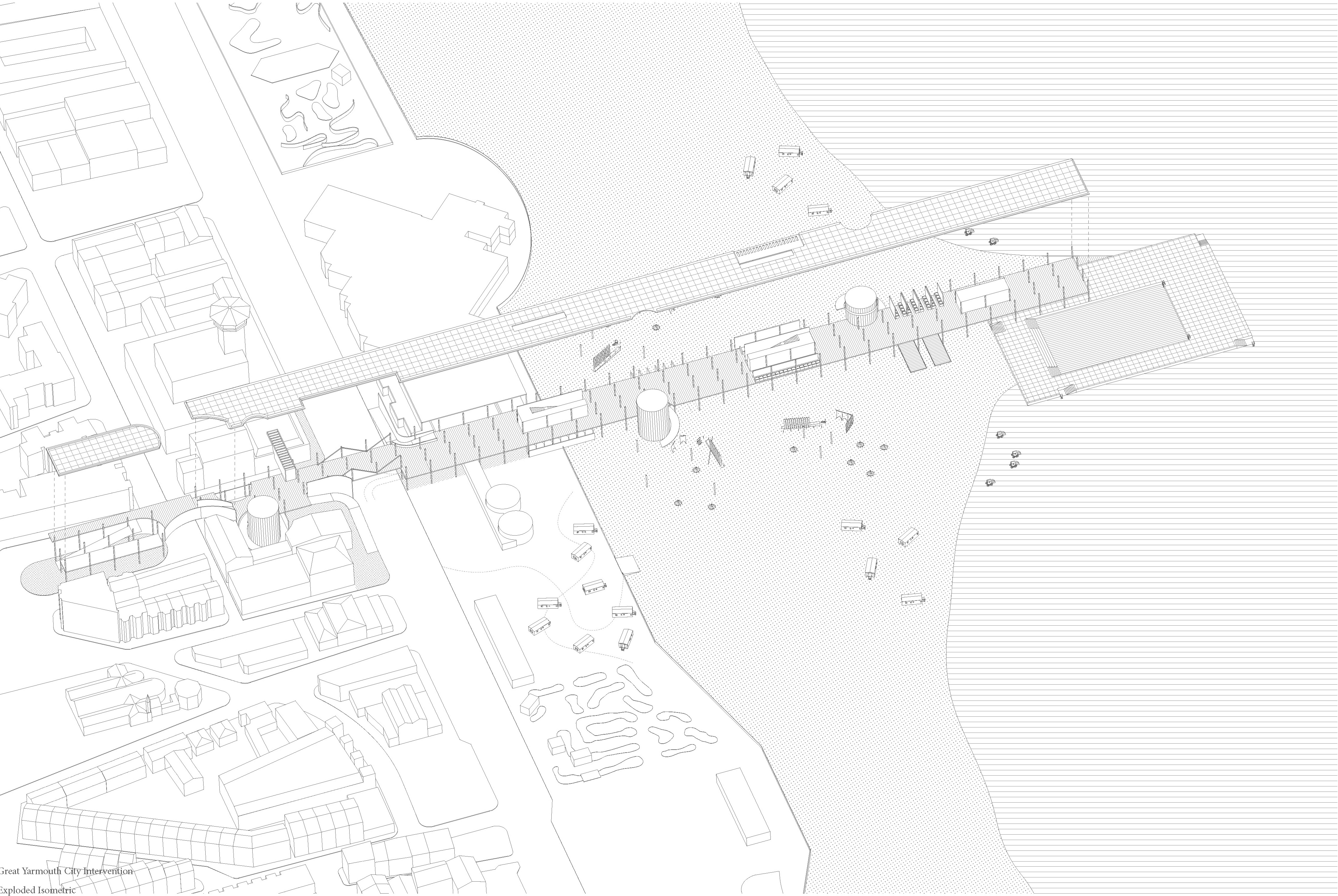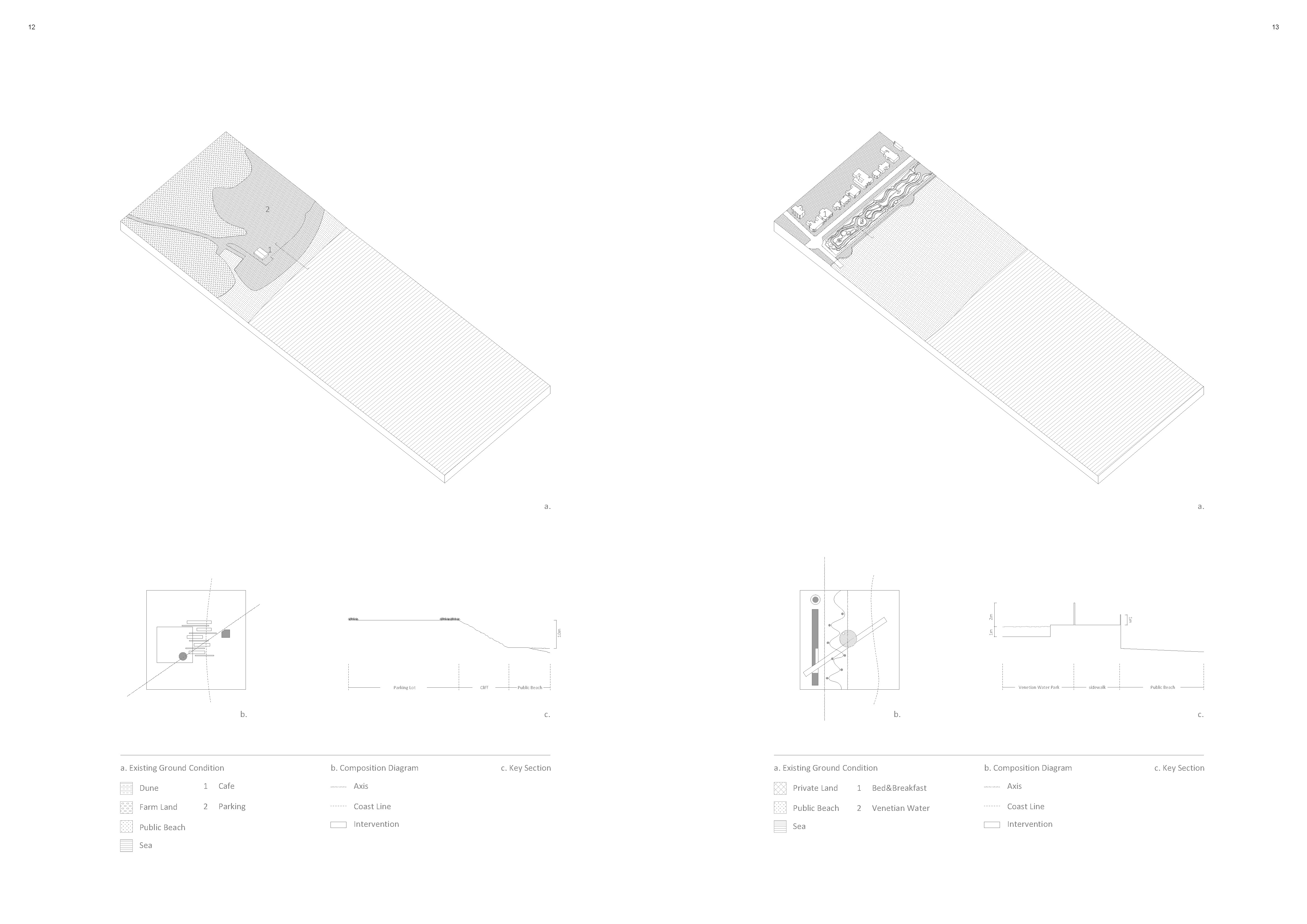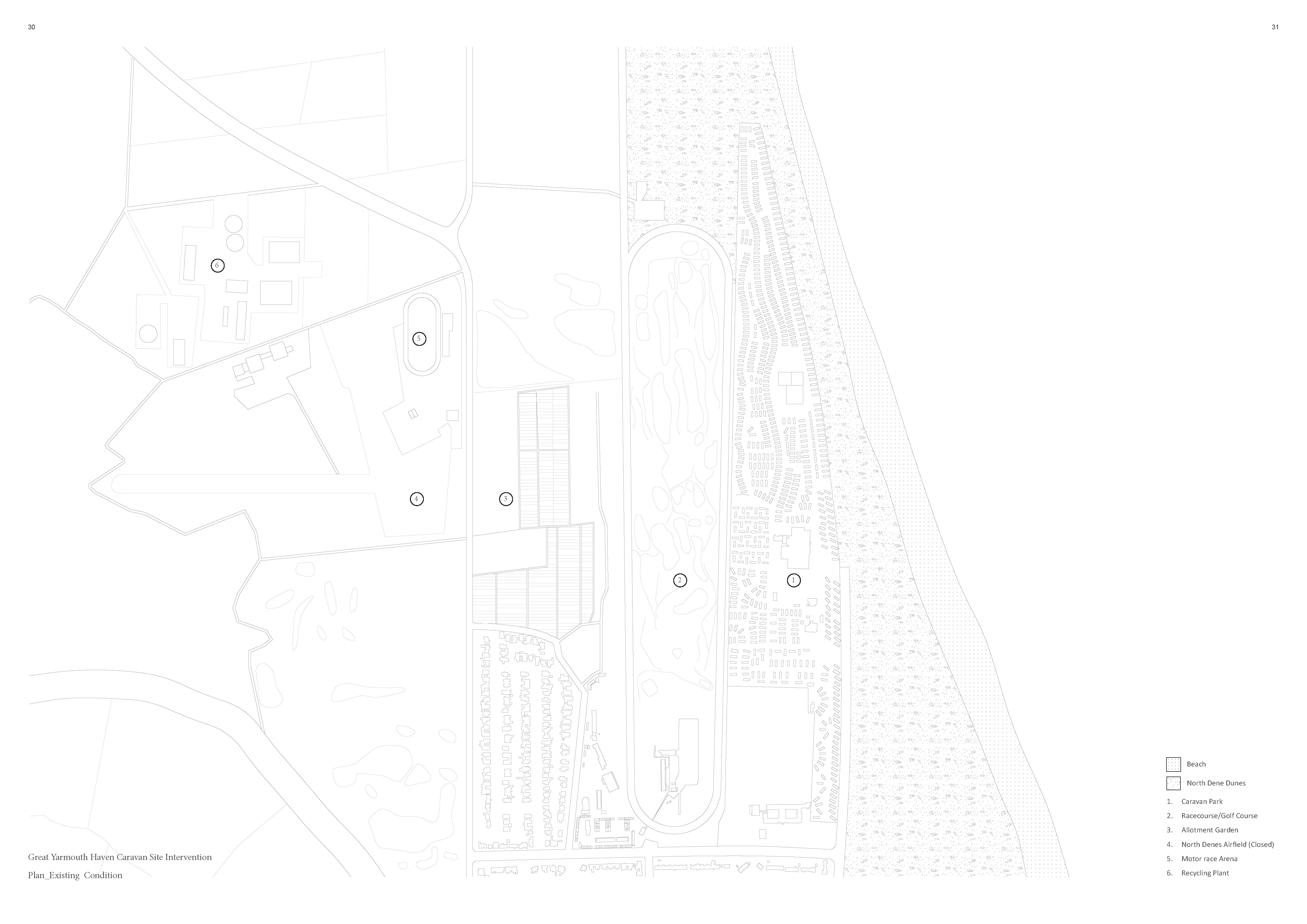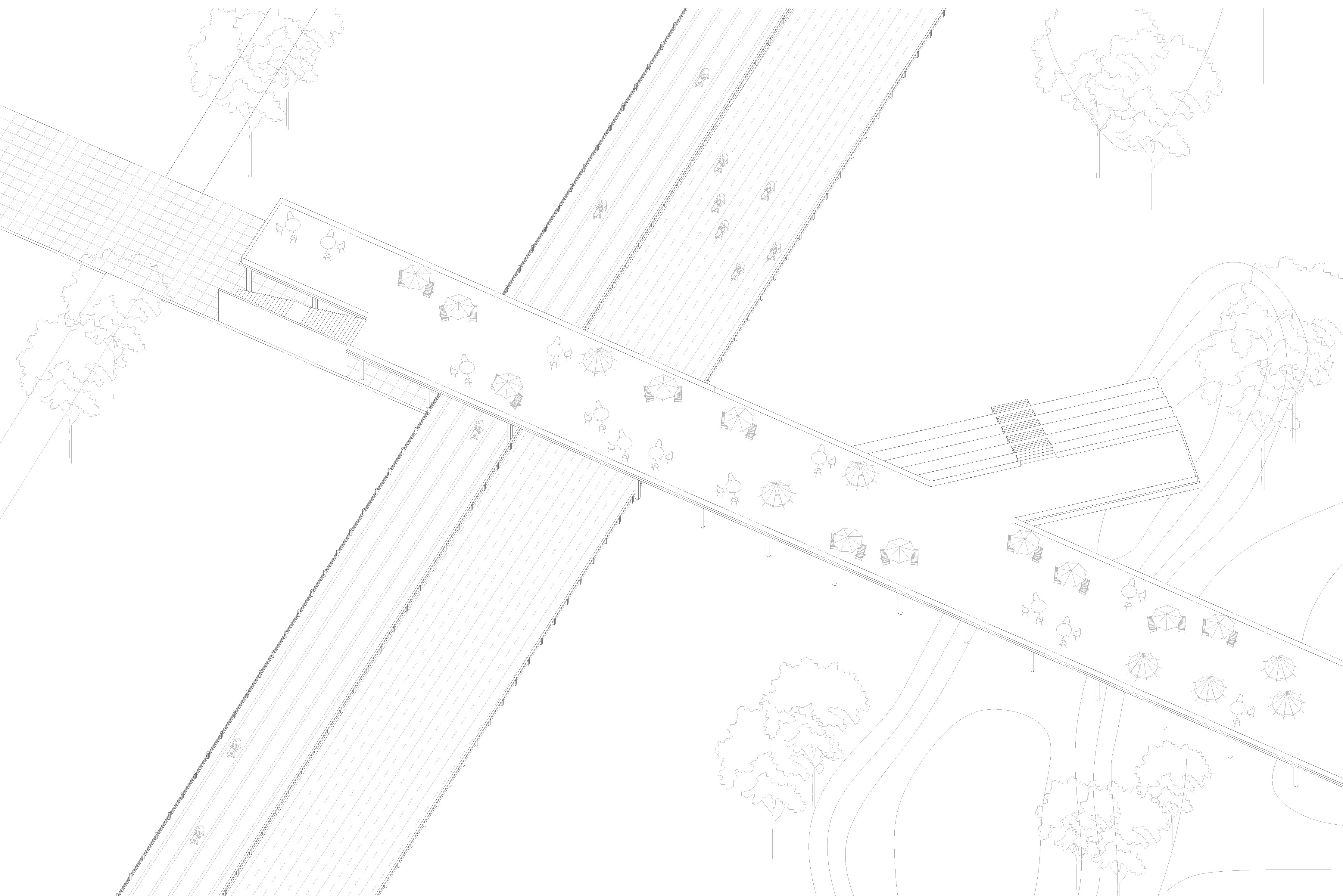UK’s Healing Landscape
Aijie Xiong

Historically, the beach was promoted as a space for fresh air, open water, and sunlight. A place where people came together to heal socially and physically. However, the UK coastal landscape was divided, flattened, gated, extruded, privatised, and instrumentalised as spaces of mass tourism under the Holiday With Pay Act (1938). The project re-imagines the static social and architectural relations between tourism infrastructures and its subjects by suspending the existing protocols and framework of ownership. Through a linear infrastructure designed for both holidaymakers and local communities, a healing landscape is reconfigured with temporality, negotiations, and collectivity.


The design project situates itself within the context of Great Yarmouth — a mile long beach divided from the city by a beach promenade. It is a boundary of private leisure facilities along with plots of internalised spaces. The proposed tourism infrastructure sits perpendicular to the shoreline to connect the inland city to its beach, providing public access for the common use of the beach. It is linear architecture that responds to existing public infrastructures by operating as bridges, pavements, ramps, stairs and platforms.

As a new pier typology, the design can be duplicated strategically along the coast to address various social and spatial conditions created by tourism development. The line identifies and re-appropriates abandoned infrastructures and connects them to the foreshore by cutting through different uses of land and spaces. Critically, it stops extensive privatised spaces operating within their own interests and protocols by re-emphasising public access to the shore. Essentially, it reclaims private land for temporal public use and provides communal spaces for both residents and tourists.




The project looks at the UK’s healing landscape not as a ground for exploitation or privatisation. These linear structures act as machines that re-configure the coastal land to provide only necessary means for the maintenance and livelihood of well-being.